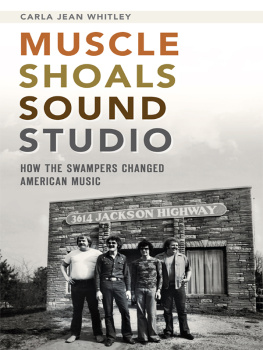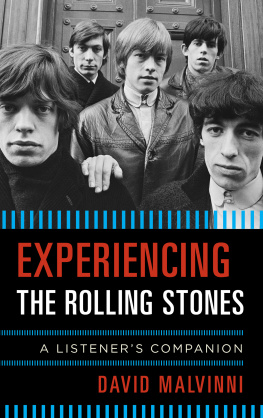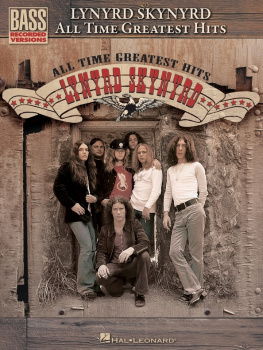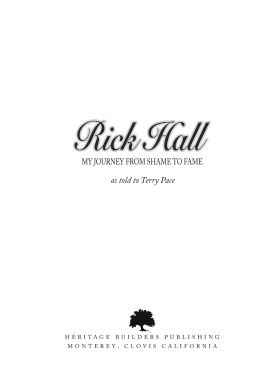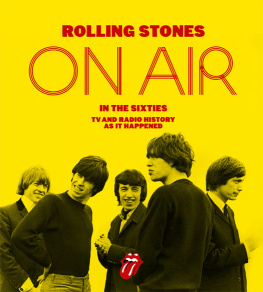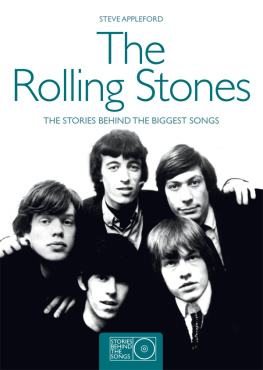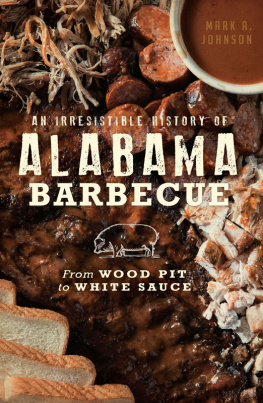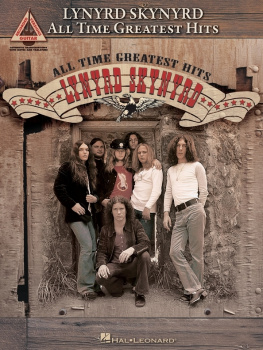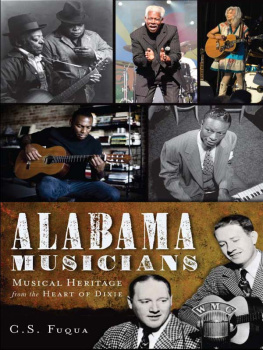

Published by The History Press
Charleston, SC 29403
www.historypress.net
Copyright 2014 by Carla Jean Whitley
All rights reserved
Front cover: Copyright Tommy Wright Productions, , 256-246-8106.
First published 2014
e-book edition 2014
ISBN 978.1.62584.717.1
Library of Congress Cataloging-in-Publication Data
Whitley, Carla Jean.
Muscle Shoals Sound Studios : how the Swampers changed American music / Carla Jean Whitley.
pages cm
Includes bibliographical references and index.
print edition ISBN 978-1-62619-239-3
1. Muscle Shoals Sound Studios--History. 2. Sound recording industry--Alabama--Muscle Shoals--History. 3. Popular music--Alabama--Muscle Shoals--History and criticism. 4. Muscle Shoals Swampers (Musical group) 5. FAME Recording Studios--History. I. Title.
ML3790.W495 2014
781.6409761915--dc23
2014025439
Notice: The information in this book is true and complete to the best of our knowledge. It is offered without guarantee on the part of the author or The History Press. The author and The History Press disclaim all liability in connection with the use of this book.
All rights reserved. No part of this book may be reproduced or transmitted in any form whatsoever without prior written permission from the publisher except in the case of brief quotations embodied in critical articles and reviews.
For Mom and Dad, who always knew I had it in me.
CONTENTS
FOREWORD
NOW MUSCLE SHOALS HAS GOT THE SWAMPERS
When I was in high school, my father used to tell me about a keyboard-playing friend he grew up with named Barry Beckett. At the time, I had no idea who he was, other than a glowing source of pride and storytelling for my old man, who recounted all of the amazing soul records Beckett played on after leaving Birminghams Ramsay High School in the early 1960s. Beckett worked with everyone from the Rolling Stones to Bob Dylan and Julian Lennon to Bob Seger. My father was more than effusive when talking about his old pals musical exploits. Dad would go on and on about the first time he heard the records Beckett played on and how earth shattering they were to the kids of his generation.
I was impressed, but at the time, I was heavily into the Velvet Underground, Sonic Youth and various offshoots of grunge and psychedelia. I (foolishly) didnt take much interest in the sounds of my fathers youth.
But as I grew older and my record collection began to expand in ever-increasing leaps and bounds in college, I kept noticing Becketts name popping up in the weirdest of places. First it was on Traffics terrific 1973 live LP On the Road, where Beckett was featured alongside Steve Winwood, Jim Capaldi and the future percussionist for legendary krautrock outfit Can, Reebop Kwaku Baah. Hmmm, I thought. Now thats interesting.
Maybe there was more to this story than my old man was letting on.
There were also three other names on that record that I would soon realize were synonymous with high-quality LPs and an obligatory scroll through the musician credits of every album I picked up along the way.
My dad didnt know David Hood, Jimmy Johnson or Roger Hawkinsat least not personallybut he did know their music and told me about a little band they used to have up in Muscle Shoals known colloquially as the Swampers. But wait. Wasnt there a line in Lynyrd Skynyrds Sweet Home Alabama about a band called the Swampers? Were those the same people my dad was talking about? The ones who were known to pick a song or two?
At first, I was a little confused. Did my dad actually know these people? And were they the same ones who played on all of those amazing records he used to rave about? I experienced this epiphany during the pre-Internet days of the mid-90s, and so I couldnt be sure. There wasnt yet a massive computer database to waste countless hours searching through, or Google, or Wikipedia. Instead, I had to piece together the story myself, one record at a time, as I dug ever deeper into the dusty crates and crevices of used record stores around the state of Alabama in search of a new fix.
And so it began.
Wasnt that Becketts name on the back of Bob Dylans Slow Train Coming, listed as producer? And there he was again on Paul Simons There Goes Rhymin Simon with the rest of the Swampersjust like on Dr. Hooks Pleasure & Pain. And was that Jimmy Johnson listed in the credits as engineer on the Rolling Stones Sticky Fingers, along with a place called Muscle Shoals Sound Studio? When the hell were the Stones in Muscle Shoals recording that album anyway?
In fact, didnt Herbie Mann record an entire LP there called Muscle Shoals Nitty Gritty with legendary vibraphonist Roy Ayers? And werent those all four of the Swampers playing on J.J. Cales Really? Are these even the same guys? From my home state?
Little did I know that I had stumbled on one of the great cornerstones of modern music and a group of some of the finest arrangers and performers to ever come out of not just Alabama or the United States but, ultimately, the world.
These musicians hailed from a small town northwest of Birmingham, the states largest city. The Shoals region would change the course of music history by laying the foundation for some of the most influential recordings of the twentieth century, with everyone from the Staple Singers to Delbert McClinton falling under its sway. The Muscle Shoals Rhythm Section was a cadre of brilliantly unassuming rock and soul missionaries that made its mark on history through a long list of session and production work that would rival anything coming out of Motown, Philadelphia or New York City.
The group gnashed its teeth under the hard-won tutelage of Rick Hall, from FAME Recording Studios, who not only put the group members through their paces but also helped mold them into the tireless workhorses he knew they could be. The Muscle Shoals Rhythm Section was not just a group of breakaway rebels trying to find their way in the music business with the studio at 3614 Jackson Highway but revolutionary sound sculptors who would play massive roles in almost every genre of popular music from the 1960s onward. Their work included everything: country, funk, reggae, southern rock. They could easily compete for the title of Greatest Band Youve Never Heard (But Actually Have).
The Swampers left behind a massive catalogue of hits and (ever-so-slight) misses for crate diggers like myself to one day uncover. They sent ripples around the music industry with their mysterious backwoods pedigree and down-home charm, making their work a calling card to the world to show that Alabamaand the Shoals in particularwas among the leading lights in state-of-the-art audio craftsmanship and a place where raw sonic synergy seemed to hang in the air like the humidity on a hot summers night by the Wilson Dam.
This is their story.
Lee Shook Jr. is a freelance writer, videographer, documentary filmmaker and concert promoter based in Birmingham, Alabama. He is also the host of the Audiovore, a specialty radio program on Birmingham Mountain Radio that offers historical context for various strains of modern music along with in-depth interviews with artists from around the country. You can hear him at bhammountainradio.com on Sundays from 10:00 p.m. until midnight, central standard time.
ACKNOWLEDGEMENTS
Although the act of writing a book is solitary work, this story couldnt be told without the community that has rallied around me. I firmly believe people dont thrive in isolation, and Im so fortunate to have so many to lean on. Thanks to:
Next page
